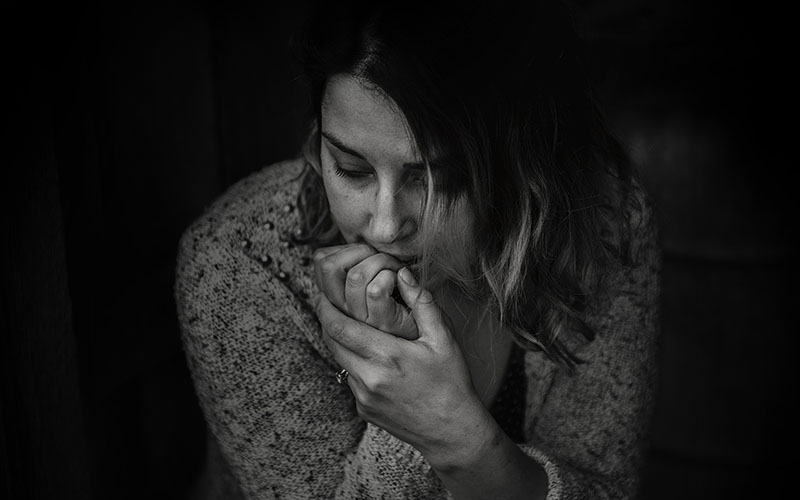Domestic violence is an uncomfortable topic to discuss. But it’s a discussion which can save lives.
Domestic Violence Awareness Month provides us with the opportunity to raise awareness of domestic violence and outline the supports available for the 60,000+ Victorians affected by family violence every year¹.
The number of people affected by family violence has continued to rise during the COVID-19 period, and our Victims Assistance Program (VAP) team is seeing this in their daily work.
We spoke with Jacinta Wainwright and Kaye Londrigan from our VAP program to discuss family violence and how they’re supporting victims of violent crimes.

Free help for victims of crime
The Victims Assistance Program is a Victorian State Government funded program, providing both practical and emotional support to victims of violent crimes across the state.
Violent crimes can include homicide, sexual assault, other forms of assault, robbery or home invasions, culpable driving causing the death of a person, and family violence.
“At CatholicCare Victoria we’re funded to run the VAP program in the Grampians and Barwon South West regions of Victoria,” says Jacinta Wainwright, Victims Assistance program Manager.
“We support both primary victims – the people who have had a crime committed against them – as well as secondary victims, who might be family members or witnesses to a crime. We also support people of all genders.”
Our VAP team provides a range of supports including:
- helping victims make informed decisions about the support they need or action they wish to take (e.g. reporting a crime)
- referrals to other services or supports
- help with making victim impact statements, attending court proceedings, and helping victims navigate the justice system from beginning to end
- help with VOCAT applications (compensation for criminal acts)
- flexible support packages for family violence victims (financial assistance for any support or services needed to maintain safety or for recovery – for example therapy, home/car cameras, home removalist costs, etc)
“In the past year, about 30-40% of the people we’ve supported in the VAP program have been victims of family violence. Each case is unique – we listen to the victim and offer them the support that they need, with our first priority being that they’re safe,” says Jacinta.
Supporting victims of family violence
In Victoria, family violence is the biggest cause of early death, disability and illness in women between the ages of 15 and 44², and family violence is also a leading cause of homelessness for women and children.
While victims of family violence are most often women, men and people who identify as non-binary and/or transgender also experience family violence.
“The Victims Assistance Program is the primary service supporting male victims of family violence across Victoria,” says Kaye, VAP Victims Support Worker.
“We also support people who have experienced elder abuse, and people who identify as LGBTIQ+. For those who identify as LGBTIQ+, we can also work with or refer them to agencies who specialise in supporting LGBTIQ+ communities.”
Family violence affects people of all ages and genders, and the impact can be devastating. Because family violence can not only include physical abuse, but financial, emotional, and psychological abuse too.
“The psychological impact on victims of family violence is extensive. Victims have often been exposed to repeated, controlling behaviour. They’ve been socially isolated from their family and friends. And very often they’re made to feel that they are to blame, rather than the perpetrator,” says Kaye.
“Family violence isn’t typically a one-off incident. It impacts every aspect of life, particularly because of the repeated, ongoing nature of the abuse,” adds Jacinta.
While the impacts of psychological and emotional abuse are often invisible to the eye, they can lead to other challenges for family violence victims.
“Sometimes we see substance abuse and addiction, or mental health issues as a result of family violence,” says Kaye. “It’s our role to respond to all the challenges a victim is experiencing, providing a holistic approach to their support and recovery.”
“When we’re the first point of call for a victim of crime, our priority is to do a risk assessment for them and their family and ensure their safety comes first. We then work to address the harm that’s been caused - we help the family or individual to rebuild and repair,” says Jacinta.
Victims do not need to have reported a crime to access support from the VAP program.
“A big part of our work is ensuring that the victim feels heard – believing their story. And helping them to make informed decisions, for example, deciding whether or not they want to report a crime. But whatever they choose and whatever help they need, we’re here to support them every step of the way,” says Kaye.
If you would like to learn more about accessing support from our Victims Assistance Program, you can call us on 1300 033 818. Calls can be made anonymously.
See below for other supports:
- Victims of Crime Helpline | T 1800 819 817 (open seven days a week from 8am-11pm)
- Safe Steps | T 1800 015 188 or E safesteps@safesteps.org.au (open 24/7)
- Safe Steps webchat | www.safesteps.org.au (open 9am-midnight weekdays, except public holidays)
Liz Gellel | Marketing Coordinator – Digital lead
Sources:
Read more: